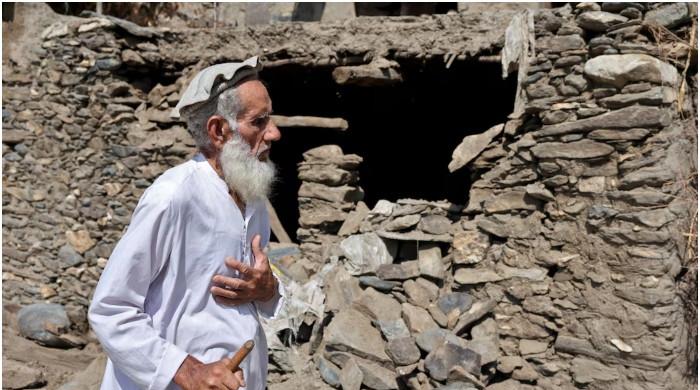- The survivors camp outside fearing the aftershocks, lack tents.
- More than 2,200 deaths in calamity, helicopters provide aid.
- Afghan children face trauma, risks of illness after the earthquake.
Haunted by the fear that the replicas could send rocks crashing from the mountains, the survivors of Afghan earth tremors refuse to return to their devastated villages and camp in fields and along the banks, despite the homeless tents.
“We have no shelters, not even a tent,” said 67 -year -old farmer Adam Khan, standing in front of his ruined house in the village of Masud, in the eastern province of Kunar in Afghanistan, which was flattened by recent earthquakes. “It rained last night, we had no room to cover ourselves. Our greatest fear is the big rocks that could go down at any time.”
Two earthquakes since August 31 have killed more than 2,200 people and injured more than 3,600 in the region, flattening thousands of mud and stone houses. The aftershocks triggered fresh landslides, leaving families trapped between unstable mountains and swollen rivers.
Help agencies have stolen in helicopter foods and supplies, but survivors say that the aid was slow and uneven. Many villages remain cut, several hours from the nearest road. Families are now gathering in makeshift camps, with a little more than their recovered goods.
“The tents they have given us cannot even welcome our children,” said Farmer Shams-Ur-Rahman, who lost six parents and fled with his nine-year-old family. “Going down from the mountain, I had no shoes for my son, so I shared mine with it in turn when we got off.”
For many, the trip seems permanent. “Even if there is no earthquake, simple precipitation could crash on rocks,” said Gul Ahmad, 51, next to the swing pop-up tents. “We will not return. The government must provide us with a place.”
Humanitarian groups warn that homeless, sanitation and adequate food, trauma could spread disease and deepen poverty in one of the most subject to world. The children are among the least affected – Sadiq, 12, who survived at 11 am trapped under rubble, said quietly: “I thought I would die. It was like a Doomsday day.”
Meanwhile, at the United Nations, Shannon O’hara, responsible for the OCHA strategy and coordination, Afghanistan, will be practically humanitarian response to earthquakes.




